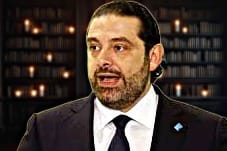Saad al-Hariri, a prominent Lebanese politician and businessman, is a name that has been central to Lebanon’s political landscape for over two decades. As the son of former Prime Minister Rafik al-Hariri, Saad has inherited a complex legacy in a country marked by sectarian divisions, political instability, and regional tensions. Known for his leadership of the Future Movement and his tenure as Prime Minister of Lebanon, Saad al-Hariri has played a critical role in shaping Lebanon’s modern political identity. His career has been defined by both his commitment to his father’s vision of rebuilding Lebanon and his struggles with navigating the intricate and often tumultuous political environment of the Middle East.
This article will delve into the life, political career, and lasting impact of Saad al-Hariri, exploring his rise to prominence, key leadership moments, and the challenges he faced throughout his career. We will also look at his influence on Lebanon’s political culture and his role in the broader regional dynamics of the Middle East.
Early Life and Family Background

Saad Rafik al-Hariri was born on April 18, 1970, in Riyadh, Saudi Arabia, where his father, Rafik al-Hariri, a successful businessman and former Prime Minister of Lebanon, had made his fortune in the construction industry. Saad al-Hariri spent his childhood between Saudi Arabia and Lebanon, where his father played a pivotal role in the reconstruction of Beirut following the end of the Lebanese Civil War in 1990. Rafik al-Hariri’s influence on Lebanese politics was profound, and he became one of the country’s most powerful and influential leaders.
Saad’s upbringing in a politically and economically influential family shaped his worldview. He attended the American University of Beirut (AUB) in Lebanon, and later completed his higher education at the King’s College London in the United Kingdom. Saad’s education and exposure to both Western and Middle Eastern political and business environments equipped him with a unique perspective on Lebanon’s political system and its role in the broader regional context.
Saad al-Hariri’s life would change drastically in 2005, when his father, Rafik al-Hariri, was assassinated in a devastating bombing in Beirut. The tragic death of his father thrust Saad into the public eye, forcing him to take on a leadership role in Lebanon’s political sphere at a young age. This moment would define the rest of his career.
The Assassination of Rafik al-Hariri and Saad’s Rise to Power

On February 14, 2005, Rafik al-Hariri was assassinated in a bomb explosion near the St. George Hotel in Beirut. The assassination sent shockwaves through Lebanon and the Middle East, plunging the country into a period of intense political and social upheaval. Saad, who was living abroad at the time, was devastated by the loss of his father. However, rather than retreating from the political scene, Saad al-Hariri chose to carry on his father’s legacy, taking on the mantle of leadership in Lebanon’s Future Movement.
Saad’s political ascent was quick, and he became a central figure in the Lebanese political landscape in the months following his father’s assassination. As the leader of the Future Movement, a Sunni political party founded by Rafik al-Hariri, Saad emerged as a symbol of Lebanon’s post-Civil War political future. He garnered widespread support from the Lebanese population, particularly from the Sunni community, which had closely identified with his father’s vision for Lebanon.
Saad al-Hariri’s leadership was further solidified during the Cedar Revolution, a popular uprising that emerged in response to the assassination of his father. The revolution called for the withdrawal of Syrian forces from Lebanon, which had been stationed in the country for nearly 30 years. The mass protests that followed Rafik al-Hariri’s death played a crucial role in forcing Syria to end its military presence in Lebanon in April 2005. Saad al-Hariri became a key figure in the opposition movement, advocating for Lebanese sovereignty and the establishment of a more democratic, transparent political system.
Saad al-Hariri’s First Term as Prime Minister (2009-2011)
In 2009, Saad al-Hariri was elected as Prime Minister of Lebanon for the first time, following the parliamentary elections. As Prime Minister, Saad faced the daunting task of stabilizing a country still reeling from years of conflict, political instability, and economic challenges. His tenure as Prime Minister coincided with a period of political deadlock, which was largely driven by the tensions between Lebanon’s two major political blocs: the March 14 Alliance (led by Saad al-Hariri) and the March 8 Alliance (a coalition that included Hezbollah, a Shiite militant group).
Despite these divisions, Saad al-Hariri worked tirelessly to strengthen Lebanon’s economic recovery and improve relations with the international community. During his time in office, Hariri’s government sought to increase Lebanon’s economic growth, attract foreign investment, and promote the reconstruction of infrastructure. His leadership, however, was often challenged by Hezbollah’s influence in the Lebanese political system and the group’s military activities in Syria. These tensions came to a head in 2011, when Saad al-Hariri’s government collapsed following a dispute over the Special Tribunal for Lebanon (STL), an international court established to investigate the assassination of Rafik al-Hariri.
Hezbollah and its allies in the March 8 Alliance opposed the STL’s investigation, which was perceived by many as implicating Hezbollah members in the assassination of Rafik al-Hariri. Saad al-Hariri, who was a staunch advocate for justice and accountability, refused to back down from supporting the tribunal. This political impasse led to the resignation of his government in January 2011.
Saad al-Hariri’s Return to Power: 2016-2020

Following his government’s collapse in 2011, Saad al-Hariri’s political career took a more subdued path, as Lebanon struggled with continued political paralysis, sectarian conflict, and regional tensions. However, in 2016, after a prolonged presidential vacuum and political gridlock, Saad al-Hariri was again appointed as Prime Minister of Lebanon. This period marked a significant shift in the Lebanese political landscape, as Hezbollah’s growing influence and Iran’s involvement in the region became key factors shaping Lebanon’s future.
In 2016, Saad al-Hariri made a strategic alliance with Michel Aoun, a Christian leader who was elected president following the resolution of the presidential deadlock. The deal between Hariri and Aoun was seen as a pragmatic move aimed at breaking the political deadlock and securing a measure of stability for Lebanon. As part of this deal, Saad al-Hariri was appointed Prime Minister for the second time, signaling his return to the political spotlight.
During his second term as Prime Minister (2016-2020), Saad al-Hariri attempted to stabilize Lebanon’s economy, attract international aid, and introduce economic reforms. However, his tenure was marred by growing protests over Lebanon’s dire economic situation, which included soaring unemployment, inflation, and a crippling public debt crisis. In late 2019, massive protests erupted across the country, with demonstrators calling for an end to corruption, sectarianism, and mismanagement of public resources. Hariri, under increasing pressure, resigned in October 2019, marking the end of his second term as Prime Minister.
Challenges and Controversies
Saad al-Hariri’s political career has been far from easy, and his leadership has faced numerous challenges. One of the major hurdles Saad has encountered throughout his tenure is the rise of Hezbollah, a powerful political and military force in Lebanon that has been backed by Iran. Hezbollah’s influence, both in Lebanon and across the region, has complicated Hariri’s efforts to establish a balanced political system that maintains Lebanon’s sovereignty and independence.
Additionally, Saad al-Hariri has had to navigate the complex sectarian and political landscape of Lebanon, where power is divided along religious lines. The political deadlock and infighting between various factions, including the Sunni, Shia, and Christian communities, have often hampered Saad’s ability to implement reforms and pursue his policy objectives. Despite his best efforts, Lebanon’s economy continued to deteriorate under his leadership, leading to widespread dissatisfaction among the Lebanese population.
The massive protests in 2019, fueled by economic hardships and government corruption, were a major blow to Saad al-Hariri’s reputation. While he was seen by some as a reformist and a champion of stability, many others viewed him as a part of the corrupt political establishment that had failed to address Lebanon’s economic crisis. Saad’s resignation in the face of these protests marked the beginning of a new chapter in Lebanon’s political turmoil.
Saad al-Hariri’s Vision for Lebanon’s Future
Throughout his career, Saad al-Hariri has consistently articulated a vision for a prosperous, stable, and democratic Lebanon. He has been an advocate for economic reforms, better governance, and a more inclusive political system. His efforts to build stronger ties with the international community, particularly with Gulf countries and Western powers, have been aimed at securing foreign investment and assistance for Lebanon’s development.
However, Saad al-Hariri’s vision for Lebanon has been challenged by regional conflicts, sectarianism, and Lebanon’s reliance on foreign aid. Despite these obstacles, Saad remains a central figure in Lebanese politics, and his political party, the Future Movement, continues to play a key role in shaping the country’s future.
Saad al-Hariri’s Legacy and Influence
Saad al-Hariri’s legacy is marked by his efforts to carry forward the vision of his father, Rafik al-Hariri, and his contributions to rebuilding Lebanon after the Civil War. He has become a symbol of the Sunni community’s political aspirations in Lebanon and has worked to promote economic development and political stability in a region rife with challenges.
While his political career has been shaped by controversy, challenges, and setbacks, Saad al-Hariri’s influence remains significant. As Lebanon continues to grapple with political instability, economic crisis, and regional tensions, Saad al-Hariri’s leadership will undoubtedly continue to play a central role in the country’s political future.
Conclusion
Saad al-Hariri’s political career is a testament to the complexities of leadership in Lebanon and the Middle East. As the son of Rafik al-Hariri, Saad inherited a legacy of rebuilding and reform, but also one marked by immense political challenges. His time as Prime Minister of Lebanon saw both moments of progress and significant setbacks, as he faced the dual challenges of regional instability and domestic political paralysis.
Despite his resignation and the ongoing crises in Lebanon, Saad al-Hariri’s influence on the country’s political landscape cannot be overstated. His commitment to his father’s vision, his efforts to modernize Lebanon’s economy, and his advocacy for a more inclusive and transparent political system have left a lasting impact. However, the future of Lebanon remains uncertain, and Saad al-Hariri’s next steps will undoubtedly shape the nation’s trajectory in the years to come.

